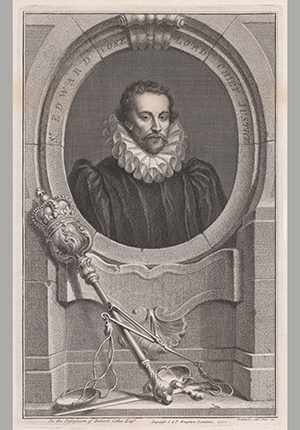Historic Document
Institutes of the Lawes of England (1628-1644)
Edward Coke | 1628-44

Yale Center for British Art, In Memory of John V. McCarthy
Summary
Sir Edward Coke (1552-1634), was the author of the Institutes of the Lawes of England (1628-44). Coke had a distinguished career as a barrister. In this capacity, he successively served as Solicitor General, Speaker of the House of Commons, Attorney General, Chief Justice of the Common Pleas, and Chief Justice of the Kings Bench. In the Case of Proclamations and Dr. Bonham’s Case, he declared that the King was subject to the law and that the laws of Parliament were void if they violated “common right and reason.” After being dismissed from his post by the King, he served in Parliament, where he helped draft the Petition of Right and secure its passage. Known as a champion of the common law, he was subsequently revered both in England and America, where his Institutes formed the basis of the study of law.
Selected by

Paul Rahe
Professor of History and Charles O. Lee and Louise K. Lee Chair in the Western Heritage at Hillsdale College

Jeffrey Rosen
President and CEO, National Constitution Center

Colleen A. Sheehan
Professor of Politics at the Arizona State University School of Civic and Economic Thought and Leadership
Document Excerpt
The Institutes
First Part: “And against reason.” And this is another strong argument in law., Nihil quod est contra ratioem est licitim; for reason is the life of the law; nay, the common law itselfe is nothing else but reason; which is to be understood of an artificial perfection of reason, gotten by long study, iturobservation, and experience, and not of every man’s naturall reason; for, Nemo nascitur artifex. This legall reason est summa ratio. And therefore if all the reason that is dispensed into so many severall heads, were united into one, yet could he not make such a law as the law of England is; because by many succession of ages it hath been fined and refined by an infinite number of grave and learned men, and by long experience growne to such a perfection, for the government of this realme, as the old rule may be justly verified of it, Neminem opportet esse sapientiorem legibus; no man out of his own private reason ought to be wiser than the law, which is perfection of reason.




